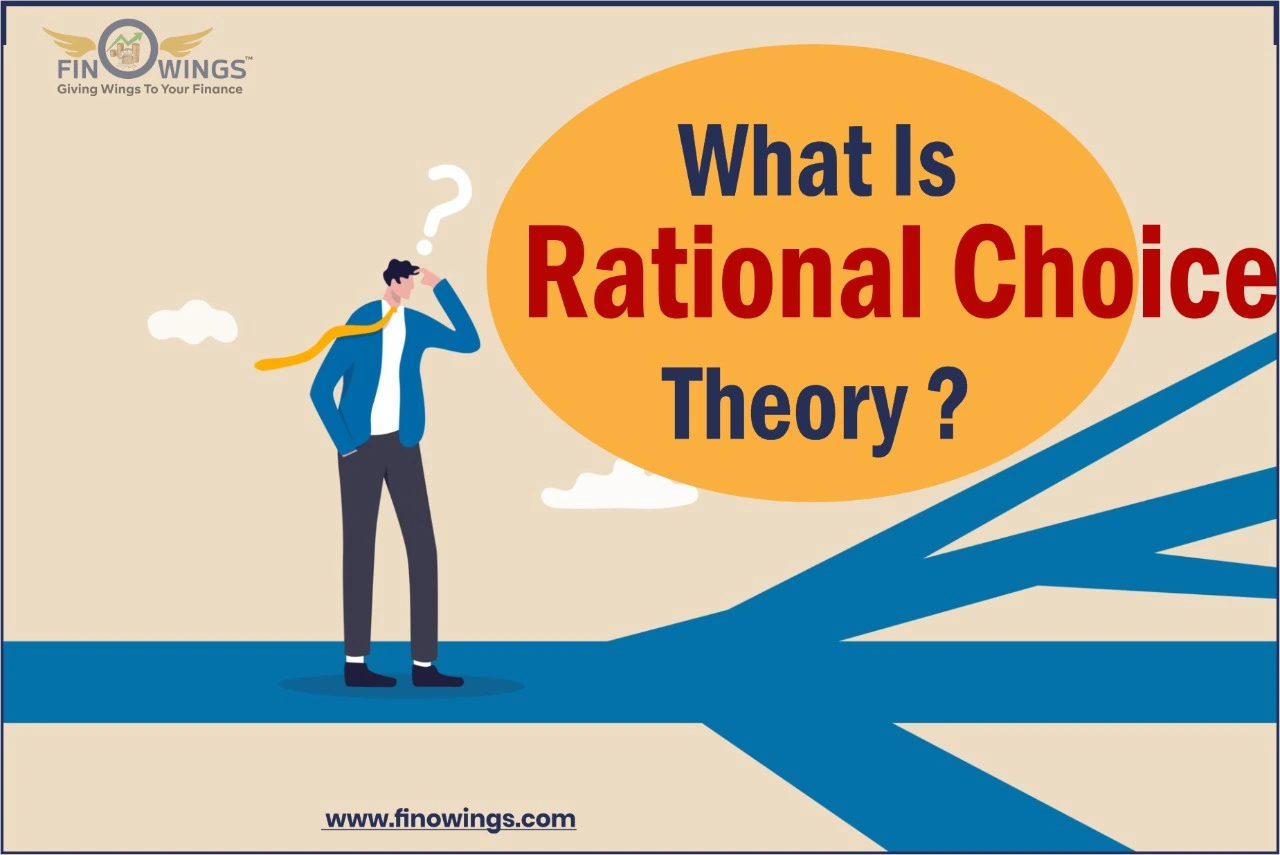Home >> Blog >> What is rational choice theory?
What is rational choice theory?

Table of Contents
Introduction
Human behaviour is a complex thing to understand. Even for humans, it isn't easy to comprehend it. Moreover, human behaviour is often difficult to predict because it depends on various factors. However, there are many areas where we need to comprehend human behaviour to make better choices that will benefit the entire community.
In this situation, the idea of rational choice theory is relevant. This is because the majority of human decisions are rational ones. Therefore, the same lesson is also taught by this concept, which aids in your comprehension of how people behave.
According to the rational choice theory, people are rational beings who make most of their decisions in their own best interests. This theory aids in understanding human behaviour and helps make decisions in various fields. Read ahead to understand the theory in depth.
What is Rational Choice Theory?
The rational choice theory discusses how people typically behave or make rational decisions. The theory puts a strong emphasis on the idea of self-interest. People are motivated by their interests. They make choices that are in their best interests and are motivated by those preferences.
According to the rational choice theory, people rationally consider their profit, interest, and goals when making decisions. They make decisions based on what produces the best results for them. However, each person may have different personal preferences. Therefore, something completely correct for one person may be entirely incorrect for another, and vice versa in other circumstances.
Humans constantly seek to maximize their advantages because they believe they merit them. The rational choice theory encourages people to weigh their options carefully and decide to serve their needs and interests.
Concept of Rational Choice Theory
Adam Smith, a philosopher, was the first to introduce the idea of rational choice theory. Smith published his book "An Inquiry into the Nature and Causes of the Wealth of Nations" in 1776. In this book, Smith explains the human propensity for self-interest and wealth. Smith also developed the invisible hand theory in this book, focusing on the unseen forces driving the market.
Understanding self-interest, rational actors, and the invisible hand are prerequisites for grasping the idea of rational choice theory. These terms are related to the rational choice theory and are crucial to comprehending it.
-
Self-interest - You must be aware of the concept of self-interest. Self-interest occurs when a person makes a choice whose results strongly favour him and fulfil his needs. Before making the majority of decisions, most people consider their self-interest.
-
Rational Actors – Rational actors are those who perform rational calculations and make choices that best serve their needs and requirements. According to the rational choice theory, rational actors prioritize maximizing their gains while minimizing losses in any circumstance.
-
Invisible Hand - The term "invisible hand" generally refers to the invisible forces influencing the market and enhancing the economy. When people in the economy put their interests first and work to make the best decisions for their businesses and firms, they inevitably serve the interests of society and the economy.
These constitute the key tenets of rational choice theory and aid in your comprehension of the theory's idea. Economists frequently use this theory to understand how society responds to decisions and helps them form policies that serve the better interests of everyone.
How to Applied Rational Choice Theory
You read about the rational choice theory's definition and get a general idea. But how is it useful in various fields? Moreover, how is this theory applied?
This section will inform you how to study human behaviour and predict people's choices using rational choice theory in various fields.
In investing, the rational choice theory is used to comprehend investor patterns and their actions during market highs and lows. Using this theory, various businesses make predictions about the outcomes in different circumstances and plan accordingly.
In economics, the theory aids in understanding how a society or group responds to particular policies; before enacting policies, economists can presumptively predict the behaviour.
Companies can research consumer behaviour in business to offer them better services or products.
In the political sector, this theory is applied to forecast how voters will react to particular reforms. Politicians can use the rational choice theory to make promises that serve the people's interests to win the support of large groups of people.
A psychiatrist trained in psychology can anticipate how a patient will respond to various situations and treat them effectively while keeping their best interests in mind.
In addition to management, this theory aids in the understanding of human motivations when consuming or using addictive substances and helps prepare an alternative that can provide similar outcomes to get rid of addiction.
This theory focuses primarily on the predetermined actions an individual or group takes in specific circumstances. This is why it is widely used in many fields to study human behaviour and give people better results by assuming their reactions.
Advantages of Rational Choice Theory
Rational choice theory can be useful in various fields to comprehend human behaviour and make decisions based on it. Therefore, experts in various fields study rational choice theory to enhance their performance and give their clients the best services possible.
The following are some typical advantages of rational choice theory:
-
This theory can be used to comprehend the actions of an individual or a group of people.
-
This theory greatly aids in understanding how people behave and the decisions they are most likely to make in various circumstances.
-
This theory also helps to explain why people act irrationally in various circumstances.
-
This theory aids in developing a better understanding of the group or society, enabling professionals in various fields to offer their clients better services and create better national policies.
-
This theory helps us increase our ability to observe the world around us.
Disadvantages of Rational Choice Theory
There is nothing in this world that is without benefits and drawbacks. Like everything else, the rational choice theory has its drawbacks. If this theory has many advantages, its detractors also highlight its shortcomings. The disadvantages of the rational choice theory are as follows:
-
Humans do not always respond the same in all circumstances. Therefore, you cannot conclude that they always make rational decisions.
-
Due to a variety of factors, including emotions, which influence people's reactions, people don't always make rational choices.
-
This theory frequently fails because people lack the knowledge or ability to see the effects necessary to make informed decisions.
-
People react differently in different situations. For example, they might visit a different store to save INR 200 on a purchase of INR 1000, but they wouldn't make the same effort to save INR 1000 on a purchase of INR 1 lakh.
-
The inadequacy of human behaviour prediction renders this theory flawed. It could be possible that different individuals react differently in certain situations.
-
The rational choice theory favours calculated decisions, whereas instantaneous decisions, which must be made immediately, cannot be made rationally.
Example of Rational Choice Theory
The rational choice theory focuses on calculated decisions made to maximize personal gain. This theory supports human psychology, where people make decisions for their benefit.
One of the best examples of this theory in investing is when an investor purchases shares at low prices to make a better profit in the future over them and sells them when prices are too high.
Another example of rational choice theory is if someone wants to buy a mobile phone and is looking at two different models. Model 1 is expensive, but Model 2 is less expensive when compared to the first one, even though their specifications are nearly identical. A rational buyer most likely makes the purchase model 2.
This theory is simple to comprehend because it is based on the fundamental idea that making rational decisions leads to greater benefits and better outcomes for an individual. However, this theory is also in contradiction with itself.
Humans are not perfect, nor do they always act the same way. For example, there are many instances where people make decisions that are not rationally sound because they have let their emotions rule them. For example, irrational decisions result from war, political strife, criminal activity, etc.
Conclusion
The rational choice theory supposes that people react to situations and make decisions based on their welfare. This theory aids professionals in various fields to better understand client behaviour and provide better services. In addition, this theory plays a key role in studying group behaviour in economics, investing, and various other fields.
However, because people are easily distracted and moved by various forces, no one can always predict a person's behaviour, and this theory may not always hold. Even though the rational choice theory has shortcomings, experts from various disciplines still use it to research human behaviour.
Frequently Asked Questions
The rational choice theory analyses the data and draws logical conclusions about how people behave and respond in various circumstances. This enables businesses to anticipate investor behaviour and develop better policies.
In the 18th century, economist and philosopher Adam Smith proposed the idea of rational choice theory first time.
The rational choice theory is centred on specific data and how people make sensible decisions in specific circumstances. However, because humans are made up of emotions, social conventions, and other similar factors, his rational decision can be readily influenced. This makes this concept unsuitable in a variety of circumstances.

















